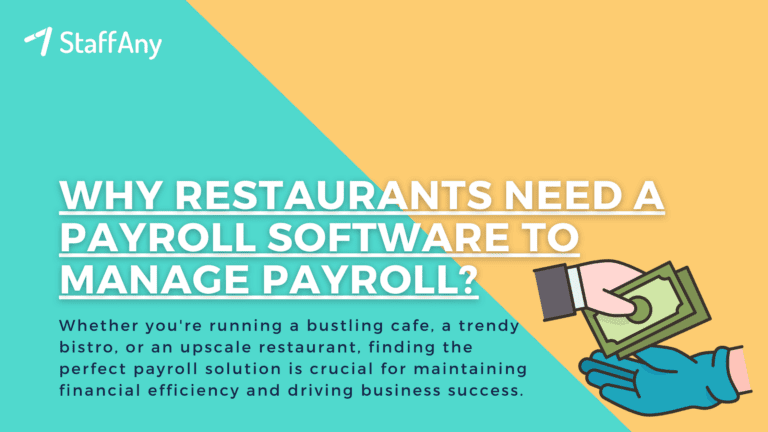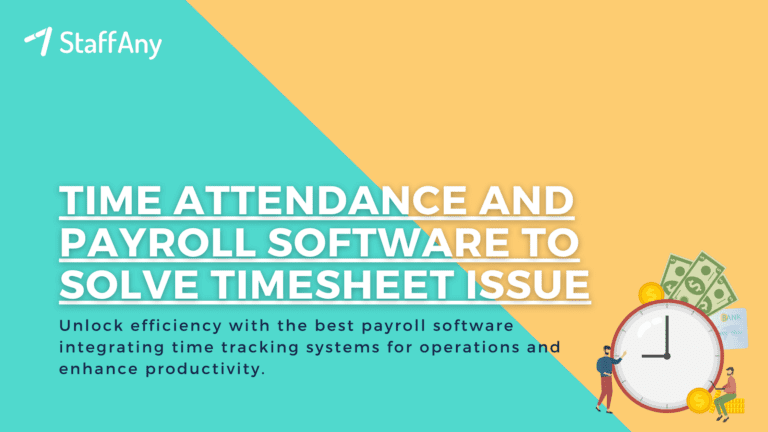As an employer in Malaysia, it’s essential to understand the regulations around overtime work to ensure that your employees are compensated fairly and that your business is compliant with the law. With the guidelines for overtime in Malaysia labour law below, including what constitutes overtime work, overtime policies and procedures, determining overtime work, and calculating overtime pay for employees, we’ll help you understand it!
Malaysian Labour Law on Overtime

The Employment Act 1955 is the primary legislation governing employment matters in Malaysia, including overtime work. In July 2022, the Employment (Amendment) Act 2022 came into effect, amending the Employment Act 1955 to provide additional protection to workers.
Under the amended Employment Act 1955, employers are required to pay overtime wages to their employees for work performed beyond the normal working hours. The normal working hours remain eight hours per day or 48 hours per week. The amendment also introduced a new maximum limit of 104 hours of overtime work per month, with exceptions for certain industries.
The amendment also introduced a requirement for employers to provide at least 30 minutes of rest for every five hours of work, with provisions for shorter rest periods in certain circumstances. Employers are also required to provide at least one rest day per week.
Read more: Graveyard Shift: Meaning, Advantages, and Disadvantages
What is Overtime?
Overtime is work performed beyond the normal working hours, which is eight hours per day or 48 hours per week, or performed during a non-working day and during a public holiday, as specified by the Employment Act 1955. Employers are required to pay overtime wages to their employees for any work performed beyond these hours.
What Constitutes Overtime Work?
Overtime work can include any work performed beyond the normal working hours, as specified by the Employment Act 1955. This can include work performed outside of normal business hours, work performed on weekends or public holidays, and work performed beyond the agreed-upon schedule.
It’s important to note that some employees may be exempt from the provisions of the Employment Act 1955, including managers, executives, and those in a confidential positions. These employees may not be entitled to overtime pay, and their terms of employment may specify different working hours and rates of pay.
Overtime Policies and Procedures
To manage overtime work effectively, employers should have clear policies and procedures in place. These policies and procedures should outline the circumstances under which overtime work is required, how it will be compensated, and how to report it accurately.
Under the Employment Act 1955, employers are required to pay overtime wages at a rate of not less than one and a half times the employee’s ordinary rate of pay for overtime work on weekdays and double the ordinary rate of pay for overtime work on rest days or public holidays. Employers should also keep accurate records of their employees’ work hours to determine overtime work accurately.
Determining Overtime Work in Malaysia
To determine overtime work in Malaysia, employers should first establish the normal working hours for their employees. The normal working hours are eight hours per day or 48 hours per week, as specified by the Employment Act 1955.
Once the normal working hours have been established, employers should identify any work performed beyond these hours. This can include work performed outside of normal business hours, work performed on weekends or public holidays, and work performed beyond the agreed-upon schedule.
Employers should keep accurate records of their employees’ work hours to determine overtime work accurately. This can be done manually or with the help of automated systems such as time clocks or electronic time sheets.
For example, a restaurant has a normal working schedule of 10 am to 10 pm (work in shifts), Monday to Sunday. However, there’s a public holiday that falls on a Monday, and the restaurant requires its employees to work that day. Any work performed on that public holiday will be considered overtime work and must be compensated accordingly.
Read more: 12 Employee Engagement Activities to Keep Your Staff Happy and Motivated
Calculating Overtime Pay for Employees in Malaysia

To calculate overtime pay for employees in Malaysia, employers should follow the guidelines set out by the Employment Act 1955. The Act requires employers to pay overtime wages at a rate of not less than one and a half times the employee’s ordinary rate of pay for overtime work on weekdays and double the ordinary rate of pay for overtime work on rest days or public holidays.
Here is a step-by-step guide on how to calculate overtime pay for employees in Malaysia:
1. Determine the Employee’s Ordinary Rate of Pay
First of all, you must determine the employee’s ordinary rate of pay. This includes the employee’s basic salary, allowances, and other cash payments for work done during the normal working hours.
2. Determine the Number of Hours Worked Beyond the Normal Working Hours
After that, you must determine the number of hours worked beyond the normal working hours. This includes any work performed outside of normal business hours, work performed on weekends or public holidays, and work performed beyond the agreed-upon schedule.
Read more: 10 Effective Strategies for Managing Diversity in the Workplace
3. Multiply the Number of Overtime Hours
After you have all the necessary numbers, you now must multiply the number of overtime hours by one and a half times the ordinary rate of pay for overtime work on weekdays or double the ordinary rate of pay for overtime work on rest days or public holidays.
4. Add the Overtime Pay to the Employee’s Total Remuneration
Here are some examples of how to calculate overtime pay for employees in the F&B industry in Malaysia:
Example 1
A waiter works 10 hours on a Saturday, which is considered a rest day. The waiter’s ordinary rate of pay is RM10 per hour. The calculation is as follows:
- 8 hours at ordinary rate: RM10 x 8 = RM80
- 2 hours at double the ordinary rate: RM10 x 2 x 2 = RM40
- Total overtime pay: RM80 + RM40 = RM120
Example 2
A chef works 12 hours on a public holiday. The chef’s ordinary rate of pay is RM15 per hour. The calculation is as follows:
- 8 hours at ordinary rate: RM15 x 8 = RM120
- 4 hours at double the ordinary rate: RM15 x 4 x 2 = RM120
- Total overtime pay: RM120 + RM120 = RM240
Example 3
A restaurant manager works 10 hours on a weekday. The manager’s ordinary rate of pay is RM20 per hour. The calculation is as follows:
- 2 hours at one and a half times the ordinary rate: RM20 x 2 x 1.5 = RM60
- Total overtime pay: RM60
Read more: Understanding the Importance of Human Resource Planning
Are you an employer in Malaysia struggling to calculate overtime pay for your staff? Look no further! Check out StaffAny’s overtime calculator in Malaysia, a free and user-friendly tool that helps you calculate overtime pay for your employees accurately and efficiently. With our calculator, you can save time and ensure compliance with the Employment Act 1955. Try it now!











